#mediaX2018 Conference: Transparency and Trust in a World of Social Bots
Reliability of information is at the heart of a global conversation. Questions about authenticity undermine trust in the messages and actions of commercial organizations as well as social institutions.
Leveraging Stanford thought leadership at the intersection of human sciences and information technologies, the #mediaX2018 Conference will bring together Stanford scholars and industry partners for a deep dive exploration of key issues in authenticity, reliability, reputation, transparency and trust. This event is designed to foster an intensive breadth and depth of conversation and connection.
This topic is rooted in the expanding capacity of machine learning algorithms and artificial intelligence to intermediate between people and data. The #mediaX2018 Conference will explore key aspects of this intersection between media, information technologies (computation, algorithms, machine learning, AI and IoT), and human sciences (social and psychological sciences, policy, communications, law & political science).
Topics will include:
* The Mutual Influence of People and Bots
* Rights, Revenues and Responsibilities in the Supply Chain of Data
* Trust & Transparency in News and Other Media
* New AI Solutions to Verify Facts
* Building Critical Thinking Skills and AI Literacy
* Teaching and Evaluating Critical Thinking Skills
* Brands, Trust and Virtual Personalities
Never Miss An Event; Join Our Email Community
Presenters
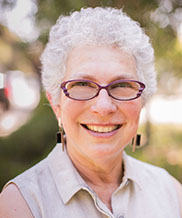
Margaret Levi is the Sara Miller McCune Director of the Center for Advanced Study in the Behavioral Sciences (CASBS), Professor of Political Science, and Senior Fellow of the Woods Institute for the Environment, Stanford University. She is also the Jere L. Bacharach Professor Emerita of International Studies, University of Washington. She has been honored with election to the National Academy of Sciences in 2015, the American Academy of Political and Social Sciences in 2016, and American Academy of Arts and Sciences in 2001, and with selection as a John Simon Guggenheim fellow, Phi Beta Kappa fellow, and CASBS fellow. During 2004-5, she served as president of the American Political Science Association.
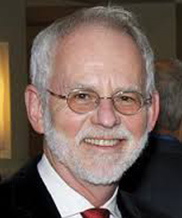
Roy Pea is the David Jacks Professor of Education and the Learning Sciences at Stanford University, Co-Founder and Faculty Director of the H-STAR Institute, Director of the PhD Program in Learning Sciences and Technology Design, and Professor, Computer Science (Courtesy). Since 1981, Dr. Pea has been exploring how information technologies can support and advance the scientific understanding and practices of learning and teaching, with particular focus on topics in science, mathematics, and technology education and their associated symbolic and communicative interchanges that are integral to learning.

Saadi Lahlou is Chair in Social Psychology in the Department of Psychological and Behavioural Science at the London School of Economics and Political Science. He directed 4 research units (in Consumer Research, Sociology of Organizations, Cognitive Science and Social Psychology), including the Laboratory of Design for Cognition, a large user lab developing augmented environments for office work. Prof. Lahlou has worked in industry R&D for 15 years, in government (French Prime Minister’s strategy unit), and academia. His current research focuses on behavioural change and design; especially involving ICT and participative design; training and digital ethnography. The recently published “Installation Theory: The Societal Construction and Regulation of Behaviour” is his 5th book.
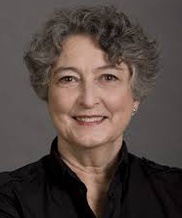
Martha Russell is Executive Director of mediaX at Stanford University and Senior Research Scholar with the Human Sciences Technology Advanced Research Institute at Stanford. She leads business alliances and interdisciplinary research for mediaX at Stanford University. Russell’s background spans a range of business development, innovation and technology-transfer initiatives in information sciences, agriculture, communications, and microelectronics - for businesses, universities and regional development organizations. With a focus on the power of shared vision, Russell has developed planning/evaluation systems and consulted regionally and internationally on technology innovation for regional development.
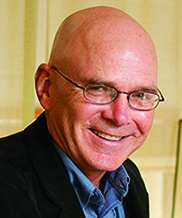
Byron Reeves is the Paul C. Edwards Professor of Communication at Stanford University. He teaches courses in mass communication theory and research, with particular emphasis on psychological processing of interactive media. His research includes message processing, social cognition, and social and emotion responses to media, and has been the basis for a number of new media products for companies such as Microsoft, IBM, and Hewlett-Packard, in the areas of voice interfaces, automated dialogue systems and conversational agents. He is currently working on the applications of multi-player game technology to learning and the conduct of serious work.

Sam Wineburg is the Margaret Jacks Professor of Education in the Stanford Graduate School of Education. Wineburg's work engages questions of identity and history in modern society: how today's youth use the past to construct individual and collective identities. His interests have spanned a wide terrain, from how adolescents and professional historians interpret primary sources to issues of teacher assessment and teacher community in the workplace. Wineburg directs Stanford’s PhD program in History Education, and is at the forefront of open source educational materials.
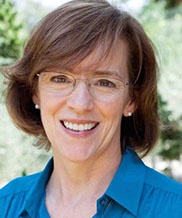
Marsali Hancock is the CEO of EP3 Foundation, a neutral nonprofit that unlocks data silos allowing access to data needed while protecting sensitive, personal health information and confidentiality. She also serves as a commissioner for the Global Information Infrastructure Commission, the oldest internet policy organization where she works with nation-state leaders to build robust communication networks companioned with proactive online safety and security initiatives. Previously, Marsali developed the first Federal Trade Commission (FTC) approved COPPA safe harbor providing state and federal education law certifications. Marsali is also deeply involved nationally and internationally in measuring and defining positive digital cultures, responsible regulatory frameworks, data privacy, data compliance, and effective education initiatives that both empower and protect consumers.
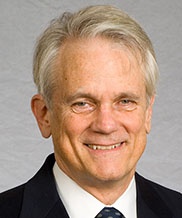
Shelby Coffey III is vice chair of the Newseum. He was executive vice president at ABC News in New York before joining CNN in 1999, where he was news chief at CNNfn. Previously, he was editor of the Los Angeles Times. Coffey has held editorial positions with the Dallas Times Herald, U.S. News & World Report and The Washington Post. In 2001, he was named a fellow of the Freedom Forum, where he studied and wrote about the media and First Amendment issues. Mr. Coffey is a member of the Council on Foreign Relations and the International Press Institute, and he served on the board of the Pacific Council on International Policy. Mr. Coffey serves as Member of International Advisory Board for Oxford Analytica, Ltd and has been its Director since July 2015.

Esther Wojcicki is the founder of the scholastic journalism at Palo Alto High School, now the largest in the nation. Over the past 30 years she built the journalism program from a small group of 20 students in 1985 to over 600 students in 2014 and five other journalism teachers. The program has won major national and international recognition and is a model of how to integrate the curriculum and teach 21st century skills. She is Vice Chair of the Board of Creative Commons, Chair of PBS Learning Matters, and on the board of the Alliance For Excellent Education. She is also an adviser to EdSurge, Hapara and Shmoop and CEO of ClassBadges.

Will Murphy is the VP of Blockchain at Talla, where he was the founding VP of Product. Previously, he was a Principal and corporate entrepreneur within FedEx Innovation, where he led new emerging tech venture development initiatives. He was a co-founder of SenseAware, an Internet of Things (IoT) platform, which was later operationalized by FedEx. He has led initiatives concerning big data, applied AI, e-commerce, the collaborative economy, and sustainable technologies. Additionally, he has been involved in autonomous vehicle, drone, blockchain, and 3D printing research.

Karen Hsu is the Head of Growth at BlockCypher. With over 20 years of experience in technology companies, Karen is co-inventor of 5 patents and has worked in a variety of engineering, marketing and sales roles to bring new products to market. She has worked on Data Integration, Business Intelligence, and CRM solutions at companies including IBM, Siebel Systems, Informatica, and SugarCRM. She has also worked closely with standards organizations such as SWIFT, NACHA and ACORD. As an undergraduate at Stanford University, Karen co-founded BASES, one of largest student run organizations at Stanford today dedicated to entrepreneurship.

Mariana Lin was the lead writer behind Siri, overseeing personality and voice internationally, and currently consults as Character Designer for Sophia of Hanson Robotics. She writes on the topic of AI writing in her column Artificial Intelligentsia in The Paris Review, and over the past 15 years, her writing has appeared in publications such as New York magazine, GQ, The Huffington Post, the Mississippi Review, and she has won awards for poetry and copywriting. She has varying proficiency in French, Chinese, classic Greek, ASL, LAMP, and is interested in the interplay of language, culture, and AI identity. She holds a BA from Swarthmore College, a JD from Berkeley Law School, and is an MFA candidate at Pacific University.

Yangbin Wang is Chairman and CEO of Vobile Group (HKSE Code 3738), the worldwide leader in video content protection, measurement and monetization services. Vobile received the 69th Annual Technology & Engineering Emmy Award for its innovation excellence in developing video identification technology to protect content value and copyright. Vobile is headquartered in the Silicon Valley, with additional operating center in Portland, Oregon, and overseas offices in Tokyo, Hong Kong and Hangzhou, China.

Emily Withrow is director of the Quartz Bot Studio, where she writes, designs, and builds narrative experiences for messaging and voice platforms. Her work examines how people and bots interact, and how to best reach new audiences and build better relationships via these emerging platforms. She’s also a professor at Northwestern University, where she taught for six years prior to joining Quartz, most recently embedded with the Knight Lab. Before that, she worked for The A.V. Club and McKinsey & Company.
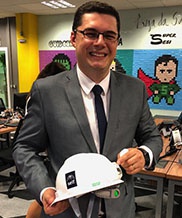
Marcelo Tournier is Director of SESI (Social Service of Industry) Innovation Center for Health Technologies. SESI Santa Catarina is a private, non-profit organization responsible for education and wellbeing programs for almost one million manufacturing employees in Brazil, improving working conditions and productivity. Marcelo supports a multi-cultural network with more than 20 countries and Brazilian Governmental Entities related to wellbeing and Innovation. Now, he is helping the ecosystem to connect insights from various sources, amalgamating them into new solutions to build a skilled, resilient and healthy workforce.

Omar Abdelwahed is Head of Studio at SoftBank Robotics America where he is responsible for leading strategic direction and development for robotics applications in America, and the overall user experience, globally. Omar has over 20 years experience as an engineer working for large video game publishers, startups and retailers including Ubisoft, 2K, PLAYSTUDIOS, and Best Buy. Previously, Omar was VP of Engineering at Mighty Play, a game developer in San Francisco. Omar's work includes the free-to-play shooter, "Ghost Recon Phantoms," and the NBA video game franchise, "NBA2K". Omar also founded the independent games developer, Agent Disco, where he published his first mobile game, "The Null Society".

Davar Ardalan, IVOW Founder and Storyteller in Chief. Davar has been a journalist in public media for 25 years, most of those at NPR News, where she designed stories anchored in multiculturalism and steeped in historical context. In 2015, her last position at NPR was senior producer of the Identity and Culture Unit. Realizing that there is a gaping hole in AI algorithms that will define our future stories, Davar created IVOW, whose AI software sifts through data on world cultures, traditions and history for modern consumer storytelling applications.

Yasunori Kimura has been working on IT policy making as a Principal Fellow at Center for Research and Development Strategy in Japan Science and Technology Agency (JST) since January 2017. Dr. Kimura joined Fujitsu Limited in 1981. Throughout his career, he has been engaged primarily in computer system design and development, and was a lead in the computer architecture research group at Fujitsu Laboratories Ltd., Japan. He contributed to the development of a compiler for parallel inference machines, parallelizing compilers, energy efficient server systems, performance evaluation of computer systems, and supercomputers, one of which was later called as ‘KEI Computer’.